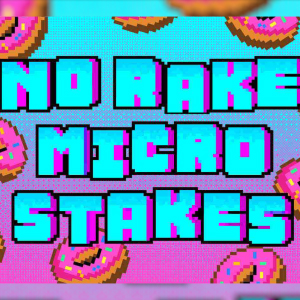Ultimate Texas Hold'em: The Casino's Answer to Tournament Poker
1 hour ago

19 Nov
Ultimate Texas Hold'em transforms traditional poker into a dynamic casino offering that pits individual players against the house dealer. This variant combines familiar Texas Hold'em mechanics with strategic betting decisions that can dramatically affect outcomes. Understanding the game's unique structure separates casual players from informed strategists.
What Is Ultimate Texas Hold'em?
Ultimate Texas Hold'em emerged in the early 2000s as casinos sought poker-based table games that could compete with blackjack and roulette. Roger Snow invented this variant specifically for casino floors, creating a game where players make strategic betting decisions while facing a dealer rather than other players.
The game uses standard Texas Hold'em hand rankings but eliminates position, bluffing, and multi-way pots. Players receive two hole cards, the dealer receives two hole cards, and the board displays five community cards. The objective remains straightforward: beat the dealer's best five-card hand by combining personal and shared cards in any configuration.
The Texas Hold'em Table Game Experience
The Ultimate Texas Hold'em table game features a specialized layout with designated betting areas for antes, blinds, play bets, and trips side bets. Most casino floors position Ultimate Texas Hold'em tables near other poker variants, creating dedicated sections for poker. The game accommodates multiple players simultaneously, though each competes individually against the dealer.
Physical tables typically seat six or seven players, with each position containing four betting circles and a trips bonus area. Chips are stacked in organized rows, dealers manage cards efficiently, and pit supervisors closely monitor the action to ensure proper procedures are followed. The atmosphere combines the strategic elements of poker with the social dynamics of table games.
How to Play Ultimate Texas Hold'em
Learning how to play Ultimate Texas Hold'em involves understanding the betting structure and key decision points that define the gameplay. The game progresses through distinct stages, each offering strategic decision points that require careful consideration and deliberation.
Initial Betting Requirements
Each hand begins with mandatory ante and blind bets of equal size. Players may also place optional trips side bets before receiving cards. The dealer then distributes two hole cards to each player and two cards to themselves, all face down. Five community card positions remain empty until later betting stages.
The ante and blind bets create the foundation for all subsequent action. Minimum table limits typically range from $5 to $25, with maximum bets reaching several hundred dollars at high-limit tables. The best online casinos frequently provide stakes ranging from $1 to $500 per hand, accommodating various bankroll sizes.
The Play Bet Decision
After viewing the hole cards, players face their first strategic decision: whether to check or make a play bet. The play bet can equal three or four times the ante amount if made at this stage. This decision carries enormous weight, as committing chips early provides the largest potential return but requires strong hole cards.
Players who check preserve options for later betting rounds. The dealer then reveals three community cards (the flop), creating a second decision point. At this stage, players may bet exactly twice their ante or check again. Checking through the flop leads to the final decision after all five community cards appear.
River Decision and Showdown
Players who checked both previous opportunities must either bet exactly their ante amount or fold when the river card completes the board. Folding surrenders the ante bet but preserves the blind bet. Making the minimum play bet keeps the hand alive for showdown.
Dealer qualification requires a pair or stronger. Non-qualifying dealers cause play bets to push regardless of the player's hand strength. Antes win even money when players beat non-qualifying dealers. The blind bet pays according to a specific paytable for premium hands, while weaker winning hands see blind bets pushed.
Ultimate Texas Hold'em Poker Hand Rankings
Ultimate Texas Hold'em poker follows standard Texas Hold'em hand rankings, with royal flushes representing the strongest possible hands and high cards ranking lowest. Understanding these rankings is essential, as pay tables and betting decisions are based on the probabilities of hand strength.
Hand Type | Example | Blind Bet Payout |
Royal Flush | A♠ K♠ Q♠ J♠ 10♠ | 500 to 1 |
Straight Flush | 9♥ 8♥ 7♥ 6♥ 5♥ | 50 to 1 |
Four of a Kind | 8♣ 8♦ 8♥ 8♠ K♠ | 10 to 1 |
Full House | J♠ J♥ J♦ 3♣ 3♦ | 3 to 1 |
Flush | A♦ 10♦ 7♦ 5♦ 2♦ | 3 to 2 |
Straight | 10♣ 9♦ 8♠ 7♥ 6♣ | 1 to 1 |
Three of a Kind | 7♠ 7♦ 7♣ K♥ 4♠ | Push |
Two Pair or Less | K♠ K♣ 5♦ 5♥ A♠ | Push |
The trip's side bet operates independently, paying out based solely on the player's final five-card hand, regardless of the dealer's results. Paytables vary by casino, but trips bets typically return 3 to 1 for three of a kind and escalate to 50 to 1 for royal flushes.
Optimal Strategy and House Edge
Mathematical analysis reveals an optimal strategy for Ultimate Texas Hold'em, though perfect play requires memorizing complex decision trees. Simplified strategies sacrifice minimal expected value while remaining practical for casino environments.
Basic Strategy Guidelines
Players should make a maximum 4x play bets with any of the following holdings: pocket pairs, ace with any kicker of jack or higher, king with any kicker of five or higher, queen with any kicker of eight or higher, jack-ten suited, or ace-king offsuit with any gap.
After seeing the flop, 2x play bets make sense with two pair or better, four to a flush, open-ended straight draws with at least one overcard, or gutshot straight draws with two overcards. Conservative players checking marginal holdings wait for the river, where 1x bets become mandatory with any pair or better.
The trip's side bet carries a house edge exceeding 3% under most pay tables, making it a poor long-term proposition despite the appeal of large payouts. Disciplined players avoid this optional wager entirely, focusing resources on an optimal play bet strategy.
House Edge Considerations
Perfect strategy reduces the house edge to approximately 2.2% on the ante and play bets combined. This edge compares favorably to many slot machines but exceeds optimal blackjack and video poker under ideal conditions. Variance runs high in Ultimate Texas Hold'em, with winning and losing streaks stretching longer than games with frequent small payouts.
Competitors find reputable platforms with favorable terms, gain access to consistent rules, and transparent pay tables. These environments support informed decision-making and proper bankroll management.
Ultimate Texas Hold'em Online
The Ultimate Texas Hold’em online experience replicates the action of a casino table through digital interfaces. Software providers developed sophisticated versions featuring smooth gameplay, clear graphics, and automated dealing procedures.
Digital Game Features
Online Ultimate Texas Hold'em eliminates the need for physical chip handling and manual card distribution. Players click betting circles to place wagers, view hole cards with a tap, and make play bet decisions through on-screen buttons. Computer algorithms shuffle and deal cards, ensuring randomness through certified random number generators.
Most platforms offer variable betting limits and detailed statistics tracking wins, losses, and betting patterns. Some sites provide turbo modes for faster gameplay.
Live Dealer Options
Live dealer Ultimate Texas Hold’em bridges the gap between digital convenience and an authentic casino atmosphere. Real dealers manage physical cards and chips while cameras stream high-definition video to players' devices. This format preserves social elements and visual card confirmation while maintaining the accessibility of online play.
Practice Ultimate Texas Hold'em
Learning an optimal strategy requires repetition and correction of mistakes. Multiple resources exist for players developing skills before risking real money.
Ultimate Texas Hold'em Simulator
An Ultimate Texas Hold'em simulator offers risk-free practice environments, allowing players to test strategies without incurring financial losses. These tools typically provide unlimited virtual bankrolls, strategy hints, and hand history reviews. Many simulators track statistics over hundreds of hands, revealing patterns in betting decisions and outcomes.
Quality simulators accurately replicate casino rules, including proper qualification standards and correct pay tables.
Free Play Opportunities
Sites offering Ultimate Texas Hold’em practice through free play modes attract beginners seeking to familiarize themselves with the game. These platforms remove monetary pressure while teaching betting procedures, hand rankings, and strategic concepts. Enthusiasts exploring poker bonuses often discover practice modes bundled with new account registrations.
Trips Bet Analysis
The optional trips side wager tempts players with large payouts but carries significant disadvantages. This bet wins based solely on the player's final five-card hand, ignoring dealer results entirely.
Standard trips pay tables return 3 to 1 for three of a kind, escalating to 50 to 1 for royal flushes. The house edge typically ranges from 3.5% to 6% depending on specific pay table variations. Mathematically inclined players recognize trips bets as negative expected value propositions, making the optimal play bet strategy the better long-term approach.
Bankroll Management for Ultimate Texas Hold'em
Proper bankroll management mitigates the game's inherent variance. Conservative players maintain bankrolls of at least 50 times their intended ante bet. A player wagering $10 antes should possess a $500 dedicated bankroll for this game specifically.
Session limits prevent emotional decisions during unfavorable runs, while win goals encourage profit preservation during favorable stretches. Players making frequent 4x play bets with marginal holdings need deeper reserves to survive inevitable downswings.
The Decision Point Advantage
Ultimate Texas Hold'em's strategic depth stems from multiple decision points, allowing players to influence outcomes. Unlike pure chance games, this variant rewards knowledge, discipline, and proper execution.
Players who consistently make optimal betting decisions maintain the lowest possible house edge. Understanding when to commit maximum chips separates winning sessions from costly mistakes, creating engaging gameplay that sustains interest across extended sessions.
Where Skill Meets the Deal
Ultimate Texas Hold'em occupies a unique position in the world of casino gaming. The format preserves Texas Hold'em's strategic elements while adapting them to house-banked table game structures. Players face genuine decisions that affect outcomes, yet the house maintains mathematical edges to ensure long-term profitability.
Success requires hand evaluation skills, bankroll discipline, and emotional control during variance swings. The game attracts poker enthusiasts seeking familiar mechanics and casino gamblers wanting strategic depth. This crossover appeal explains the sustained popularity of Ultimate Texas Hold 'em on gaming floors worldwide.
Whether players pursue the game online through digital interfaces or experience the social atmosphere of live casino tables, those who invest time in learning optimal strategies and practicing disciplined bankroll management extract maximum value from this engaging poker variant.






Comments
You need to be logged in to post a new comment